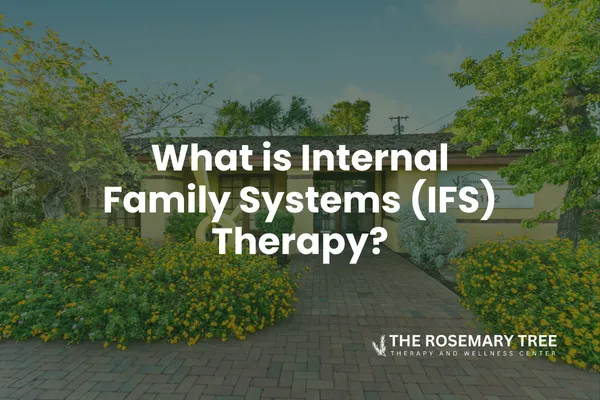
Internal Family Systems (IFS): Healing Your Inner Parts
Have you ever felt like one part of you wants one thing, but another part feels completely opposite? Maybe part of you longs to take risks while another part holds back in fear. Internal Family Systems (IFS) therapy was designed to help us understand these different “parts” of ourselves — and to lead from a place of inner balance and self-compassion.
At The Rosemary Tree, IFS is one of the powerful therapeutic approaches we use to help clients heal from trauma, reduce inner conflict, and build a stronger sense of self.
What Is IFS Therapy?
IFS, or Internal Family Systems therapy, is a model of psychotherapy developed by Dr. Richard Schwartz. It views the mind as a system made up of many different “parts,” each with its own perspective, feelings, and role.
For example, you may have:
A protective part that tries to keep you safe.
A critical part that pushes you toward achievement.
A wounded part that carries pain from the past.
IFS helps you get to know these parts and build a relationship with them. The goal is to access your “Self” — the calm, compassionate core of who you are — and let it guide the system toward healing.
How IFS Works
Identifying the Parts
You’ll work with your therapist to notice and name the different parts of your internal system.
Understanding Their Roles
Each part — even the ones that cause problems — has a purpose, usually linked to protection or survival.
Building Compassionate Connection
Instead of trying to suppress or fight these parts, you learn to approach them with curiosity and compassion.
Healing the Wounded Parts
With support, you can help burdened parts release painful emotions or memories and integrate more peacefully into the system.
Who Can Benefit From IFS?
IFS has been shown to help with:
Trauma and PTSD
Anxiety and depression
Eating disorders
Substance use issues
Relationship struggles
General feelings of inner conflict or self-criticism
Why Choose IFS?
Non-pathologizing: All parts are welcome; none are inherently “bad.”
Empowering: Helps you access your inner wisdom and strength.
Healing at the Root: Goes beyond symptoms to address underlying emotional wounds.
Flexible: Can be combined with other approaches such as CBT, EMDR, or narrative therapy.
Is IFS Right for You?
If you feel like you’re in constant conflict with yourself or weighed down by inner voices of criticism, IFS may offer a new path to healing. At The Rosemary Tree, our therapists are trained to guide you through this process with compassion, helping you access your true Self and bring harmony to your inner world.
Learn More From Trusted Resources
Final Thoughts
We all have many parts — protectors, critics, dreamers, and wounded selves. IFS therapy teaches us that when these parts are heard and cared for, we can live from a place of balance and compassion. Healing begins when you stop fighting your parts and start listening to them.


